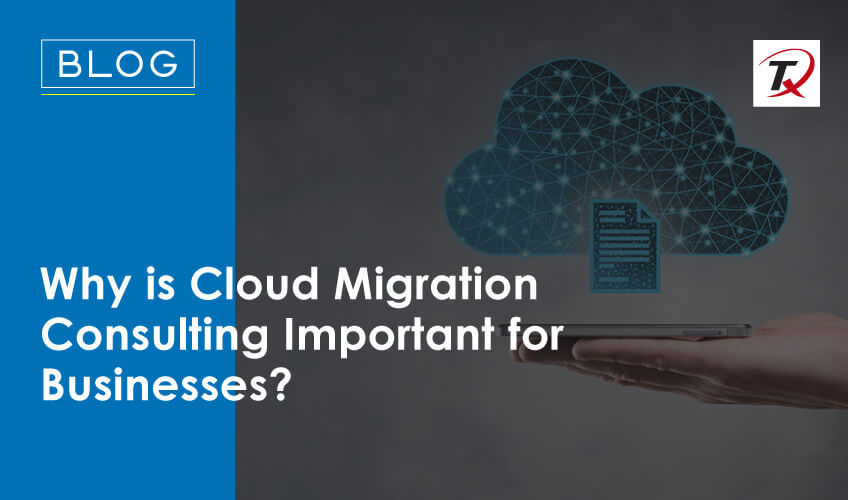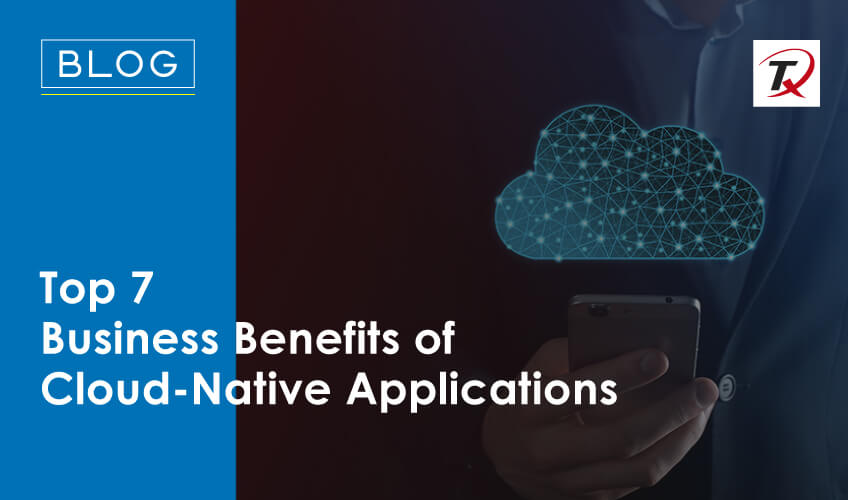
- Cloud Application Development
- Business Benefits of Cloud-based Apps
- 5 Essential Features of Cloud App Development Platforms
- How to Develop Cloud Applications?
- Why Partner with Tx for Cloud Application Development?
- Summary
The demand for cloud application development is rapidly increasing. Factors like cost-effectiveness, scalability, and the need for flexible IT infrastructure drive the trend. Predictions show significant growth in the market size and a larger portion of business data being stored in the cloud in the coming years.
- According to statistics, the global cloud computing market will witness a CAGR of 14.1% between 2025 and 2030, reaching USD 1,554.94 billion by 2030.
- A report by Allied Market Research shows that the global AI in the cloud market is projected to reach $97.9 billion by 2027.
- The projected growth of the global cloud-based application market is $168.6 billion in 2025.
These trends show that more and more companies are moving their applications to the cloud to align with the changing business landscape.
Cloud Application Development

Cloud apps or cloud-based apps are internet-run programs that store and drive some of all processes executed by organizations on the cloud. Users access these applications via a web-based interface, and examples include Google Workspace, MS 365, AWS, Dropbox, etc. Almost 94% of global organizations leverage cloud computing to access these applications. With cloud application development, businesses can create such types of productivity-based apps to enhance CX and streamline workflows. The app is built in a cloud environment rather than hosted on a local machine or server.
Businesses can run the cloud app in a web browser, but the data storage is always online. They increasingly rely on the cloud’s processing power to build innovative solutions. Cloud services make it easy for businesses to develop web-based cloud applications. However, an experienced application development organization will be more tech-focused and can build its cloud app using any technology like React, Ember, Elixir, Node.js, etc.
Business Benefits of Cloud-based Apps

Cloud solutions have a low chance of data loss without physical storage devices. This is just a single benefit of cloud-based solutions; plenty of others exist. Let’s take a quick look at some of the business benefits of leveraging cloud-based applications:
- Reduce IT infrastructure costs by eliminating the need for on-premises servers and maintenance
- Quickly scale resources up or down based on business needs without significant hardware investments
- Benefit from built-in security measures, regular updates, and data encryption to protect sensitive information.
- Enable teams to work in real-time across different locations with cloud-based file-sharing and communication tools
- Ensure access to the latest features and security enhancements without manual installations
- Protect against data loss with cloud backups and disaster recovery solutions, ensuring minimal downtime
5 Essential Features of Cloud App Development Platforms

Automation
Application management involves many repetitive and mundane tasks. Cloud app dev tools are programmatically managed and support continuous integration, capacity management, and resource optimization. These tools help decrease team burdens, allowing IT to support changing computing requirements.
Security
The cloud app development platforms are highly secure, as they follow standard security protocols to prevent user data from being hacked. These platforms are managed by skilled security experts, making the cloud one of the best security assets. In fact, approx. 91% of businesses have migrated to the cloud to improve compliance.
Pay-per-use Model
Most development platforms work on a pay-per-use model. This allows businesses to reduce their IT costs and boost their operational efficiency. It also optimizes resource utilization by enabling companies to monitor and measure their cloud resource usage while the service reports on the details.
Simplicity
Cloud app development platforms should be faster and easier to use. They must simplify the architectural design and decision-making process, enabling teams to resolve development issues if any arise seamlessly. This will facilitate easier software development across multiple IT environments.
Scalable
The platform should offer customization benefits to enable users to modify or scale their cloud services at will. Users must be able to add/remove network, computing, and other assets as needed. Flexibility is another factor to consider during cloud-based app development. It means that when demand goes up, the cloud platform should be able to add resources automatically, and when demand goes down, the services should return to normal.
How to Develop Cloud Applications?

Developing a cloud application involves a series of best practices that are given below:
Create a Structured Service Approach
Design the application as independent services or APIs for seamless cloud performance. Each service will function autonomously, enhance efficiency, simplify maintenance, and make it easier for teams to keep reusing components for future development.
Keep App Logic and Data Separate
Separating the data layer from app logic will improve process efficiency in cloud environments. Since all database interactions will occur over the internet, latency can be problematic. Optimize database performance and consider using caching tools to enhance speed and responsiveness.
Enhance Communication between Components
When planning interlinking between app components, evaluate whether continuous communication is necessary. Batching data transfers instead of frequent minor updates can reduce overhead and enhance performance.
Plan for System Failures
Cloud applications can face unexpected downtimes. To minimize disruptions, build redundancy into critical components. A failover setup ensures that if one part fails, another can seamlessly take over, maintaining service continuity.
Design for Scalability
User traffic fluctuates over time, so the application must scale dynamically. Plan for automatic resource allocation during high-traffic periods and efficient scaling down during low usage. This will help maintain cost-effectiveness without compromising performance.
Why Partner with Tx for Cloud Application Development?

Tx offers comprehensive cloud services designed to enhance your cloud application development process. By partnering with us, you will get access to:
Cloud Consultation
Our expert guidance will assist in developing a robust cloud strategy based on your business requirements. You can select suitable cloud platforms and services for your applications.
Native Cloud App Development
Our expertise allows our clients to capitalize on the benefits of microservices architecture, facilitating rapid development, DevOps deployment, and updates. We ensure your native cloud app development process is well-aligned with your business operational capabilities.
Cloud Modernization and Migration
We assist with legacy application modernization and migrate them to the cloud. Our approach involves re-architecting applications to make them scalable, more efficient, and align with the latest cloud trends.
Operations and Support
Tx offers ongoing operations and support services post-deployment to ensure your cloud applications run smoothly. This includes monitoring, maintenance, and optimization to keep your applications performing at their best.
Summary
Cloud application development transforms businesses by enhancing scalability, security, and operational efficiency. Companies increasingly adopt cloud solutions to streamline workflows, reduce infrastructure costs, and improve data accessibility. Cloud-based applications enable real-time collaboration, seamless updates, and robust disaster recovery, ensuring business continuity. Partnering with an experienced cloud service provider will ensure smooth app development, migration, modernization, and ongoing support. With the right strategy, businesses can leverage cloud technologies to drive innovation, improve agility, and stay competitive in an evolving digital landscape. To know how Tx cloud experts can assist you, contact us now!
Discover more
Get in Touch
Stay Updated
Subscribe for more info




